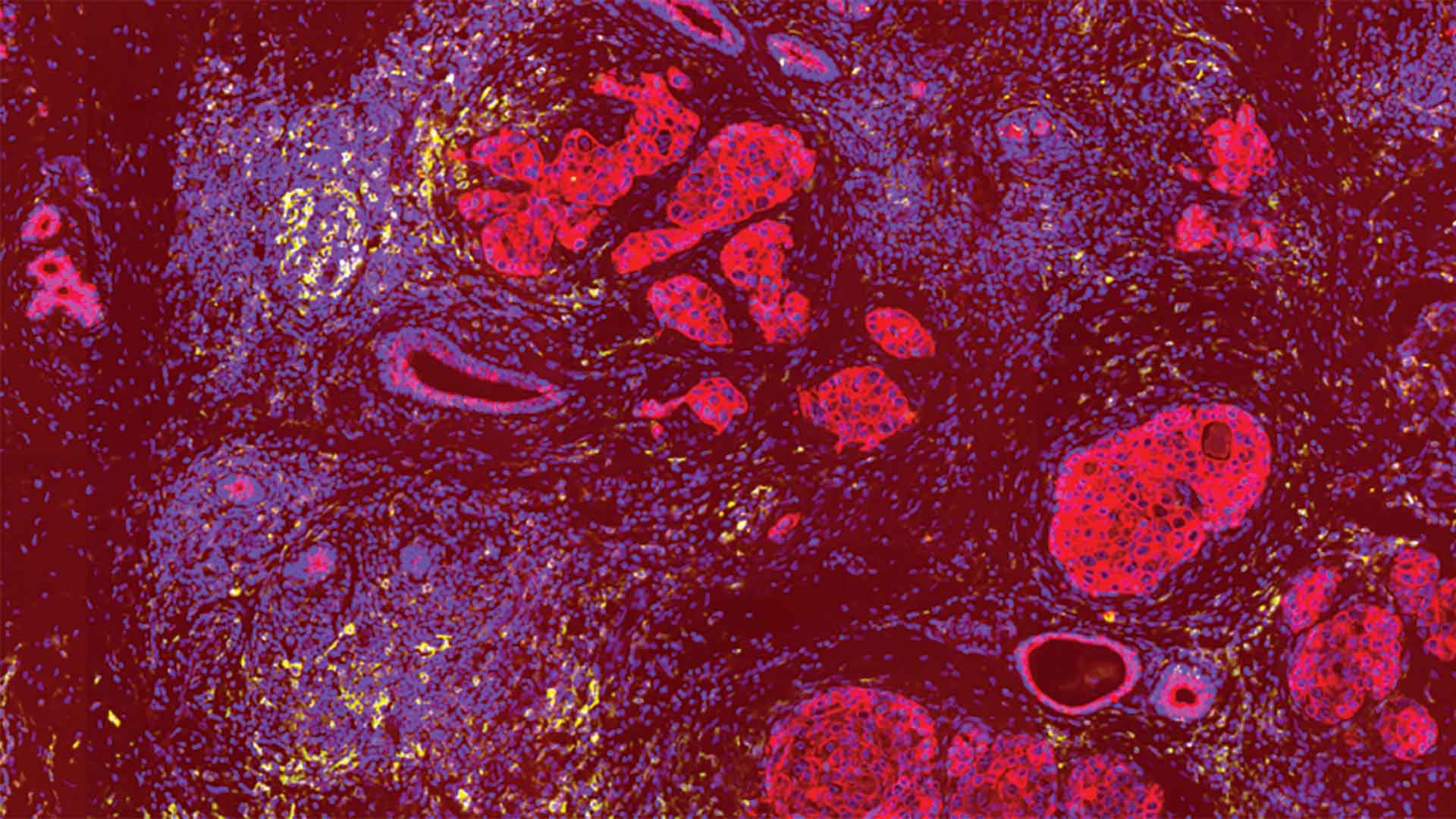Test your science knowledge
October is Breast Cancer Awareness Month at Cold Spring Harbor Laboratory (CSHL) and across the U.S. But with 300,000 new cases diagnosed each year, public knowledge of this disease is invaluable at all times. The CSHL Cancer Center takes an interdisciplinary approach to unlocking breast cancer’s secrets. There’s still a long way to go. Yet every new discovery helps to increase breast cancer awareness. Take this quiz to test your knowledge and find out more about the latest breast cancer research.
Some breast cancers lack two key hormone receptors as well as the HER2 receptor. What is this type of breast cancer called?
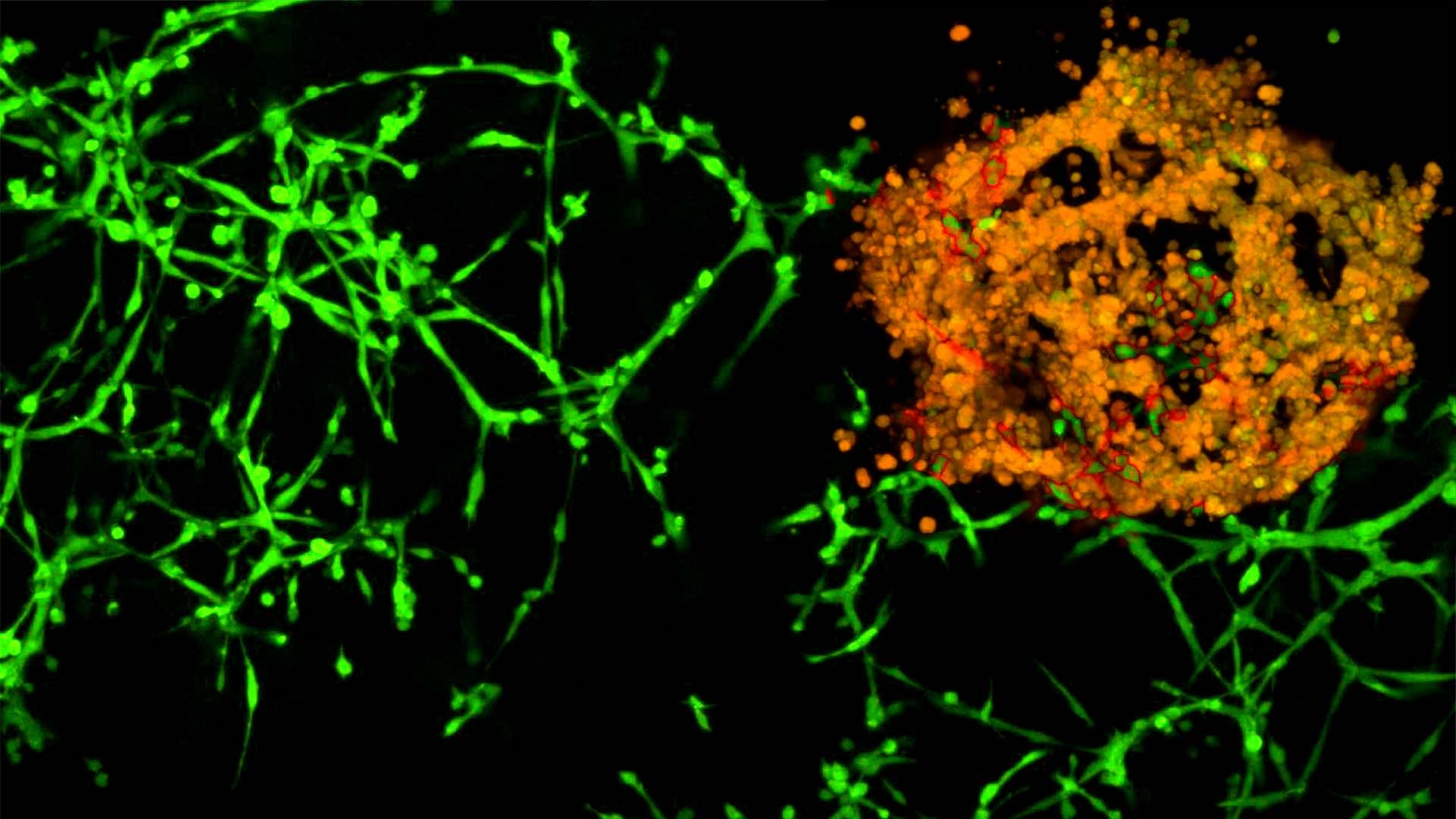
In triple-negative breast cancer, the cancer cells don’t have estrogen, progesterone, or HER2 receptors. As a result, this kind of cancer is very difficult to treat. CSHL Professor John Moses and Assistant Professor Michael Lukey are looking for sustainable solutions. They’ve discovered that a molecule called (–)-jerantinine A (JA) shuts down metabolic activity in the mitochondria of triple-negative breast cancer cells.
Which of the following is used to treat triple-negative breast cancer?
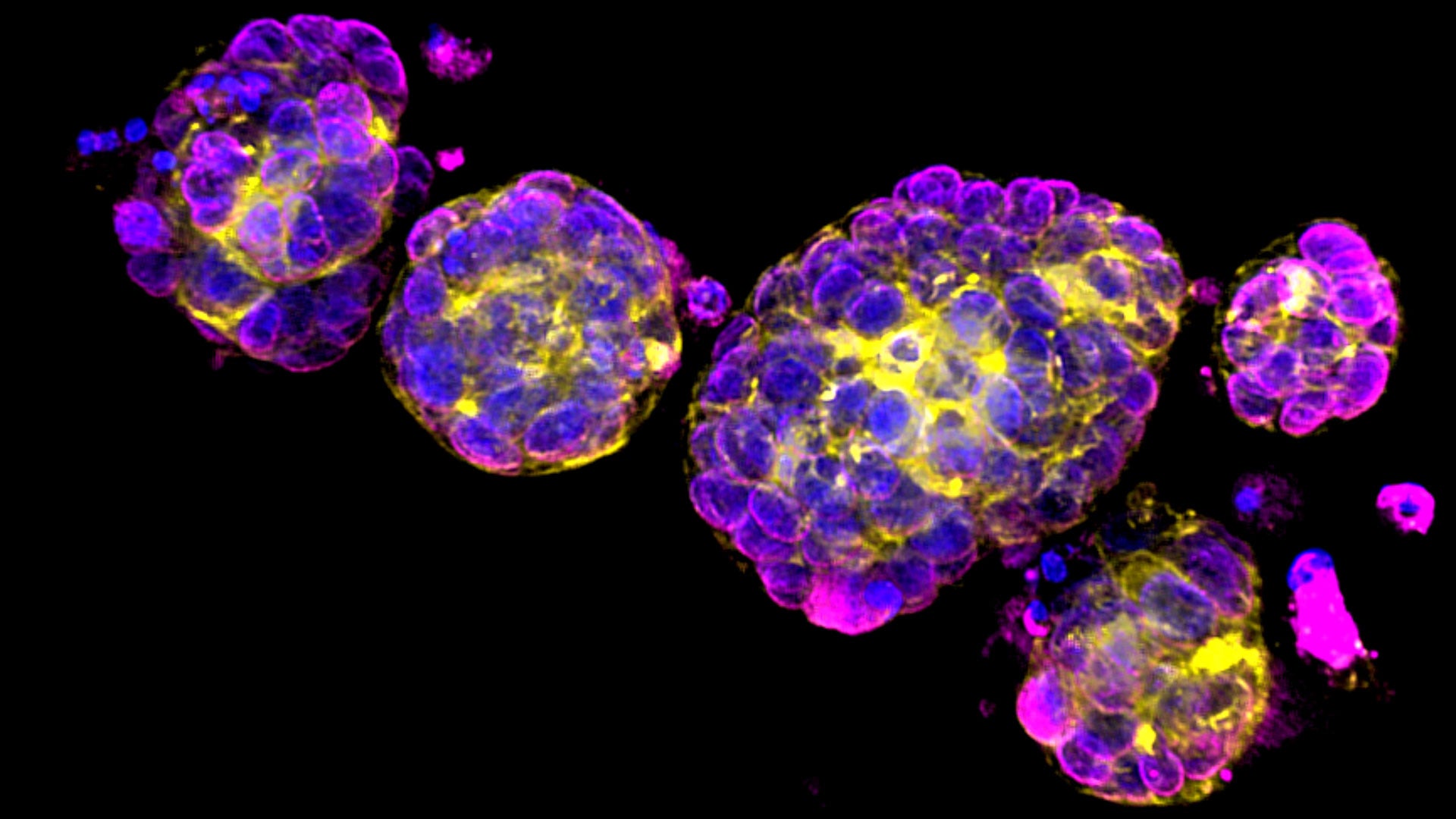
Triple-negative breast cancer is a relatively rare yet extremely aggressive form of breast cancer. To study it, CSHL researchers use miniature lab-grown tumors called organoids. CSHL Professor & Director of Research David Spector has been working with Northwell Health to create a biobank of breast cancer organoids grown from patient tumor samples, including triple-negative breast tumors. This research may one day open the door to more personalized treatments.
In mice, a molecule called MHC-II helps breast cancer spread to which of these body parts?
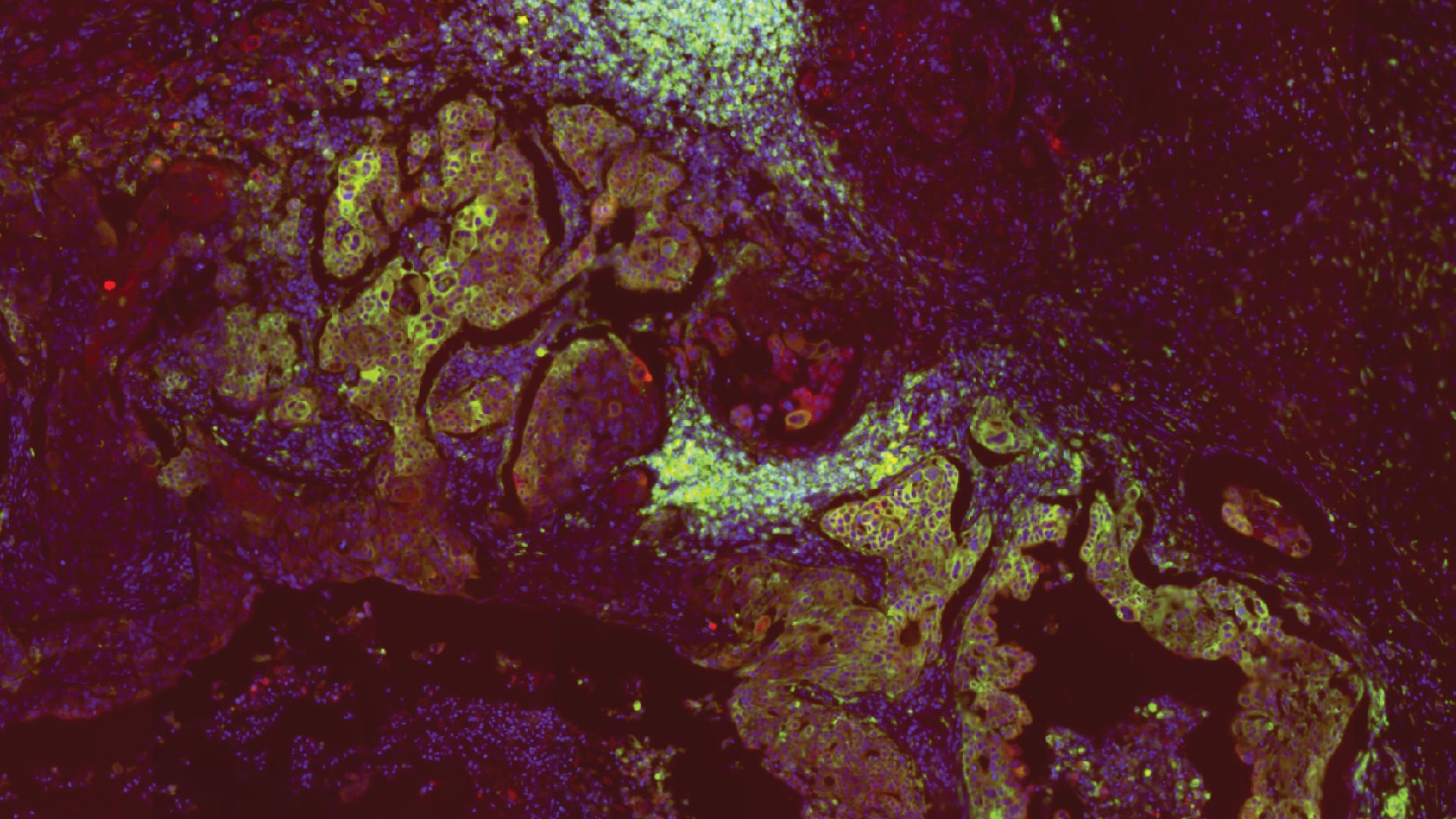
The lymph nodes are one of the body’s first lines of defense against disease. Paradoxically, they’re also one of the first stops for metastatic breast cancer. CSHL Assistant Professor Semir Beyaz has found that MHC-II tricks the lymph nodes into releasing anti-inflammatory cells that allow metastatic breast cancer to set up shop. When his team switched off MHC-II production, the immune system awoke to the threat.
Which of these statements is false?
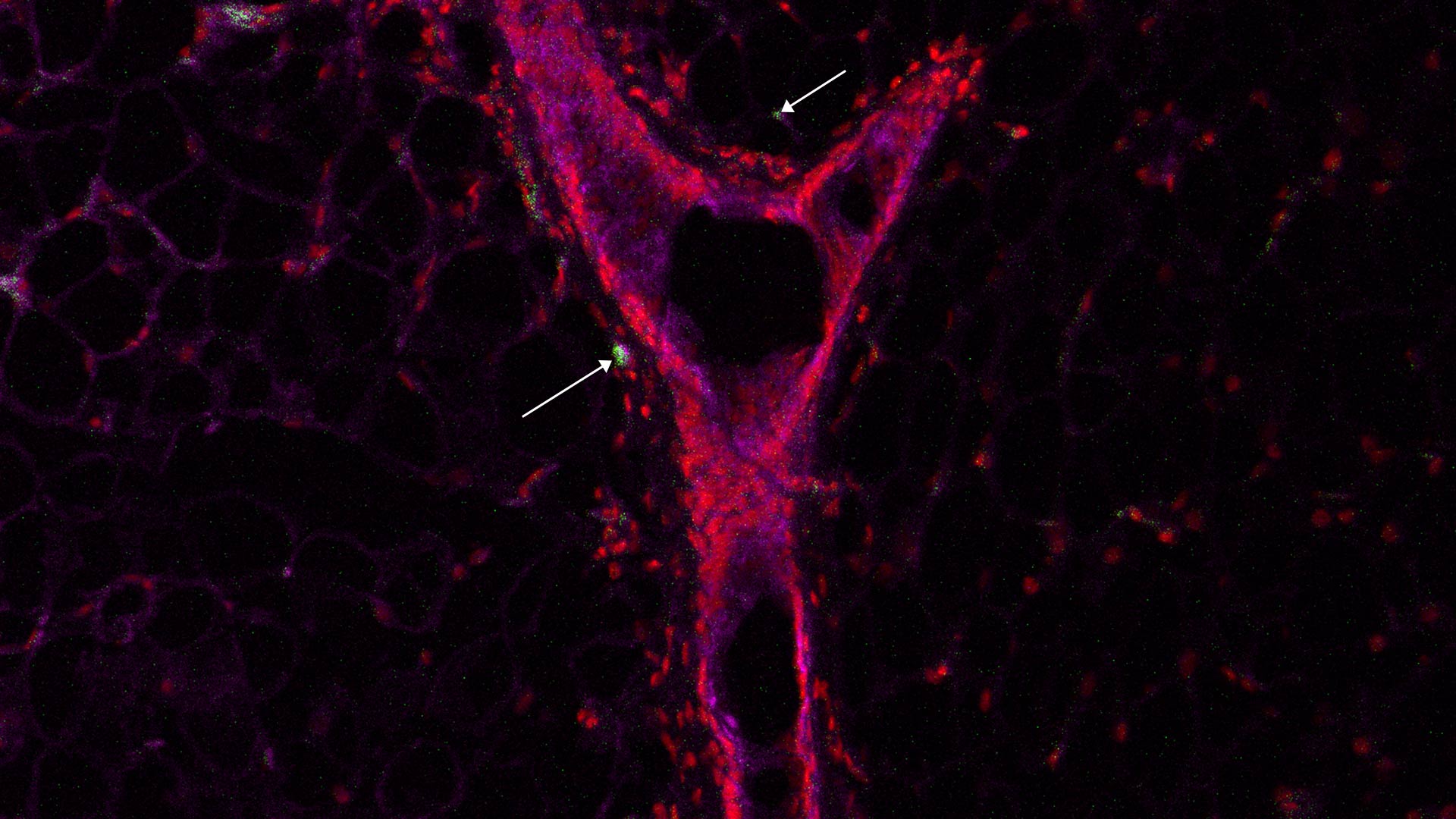
Breast cancer is the second most common cancer among women in the U.S. after skin cancer. CSHL Associate Professor Camila dos Santos’ research helps explain how the immune system boosts breast cancer resistance after pregnancy. Her lab discovered that after pregnancy, breast cells bring in Natural Killer T (NKT) cells to prevent tumor development.
Human cells are supposed to have 46 chromosomes. However, breast cancer and other cancer cells typically have more or fewer than 46. What is the name of this genetic disorder?
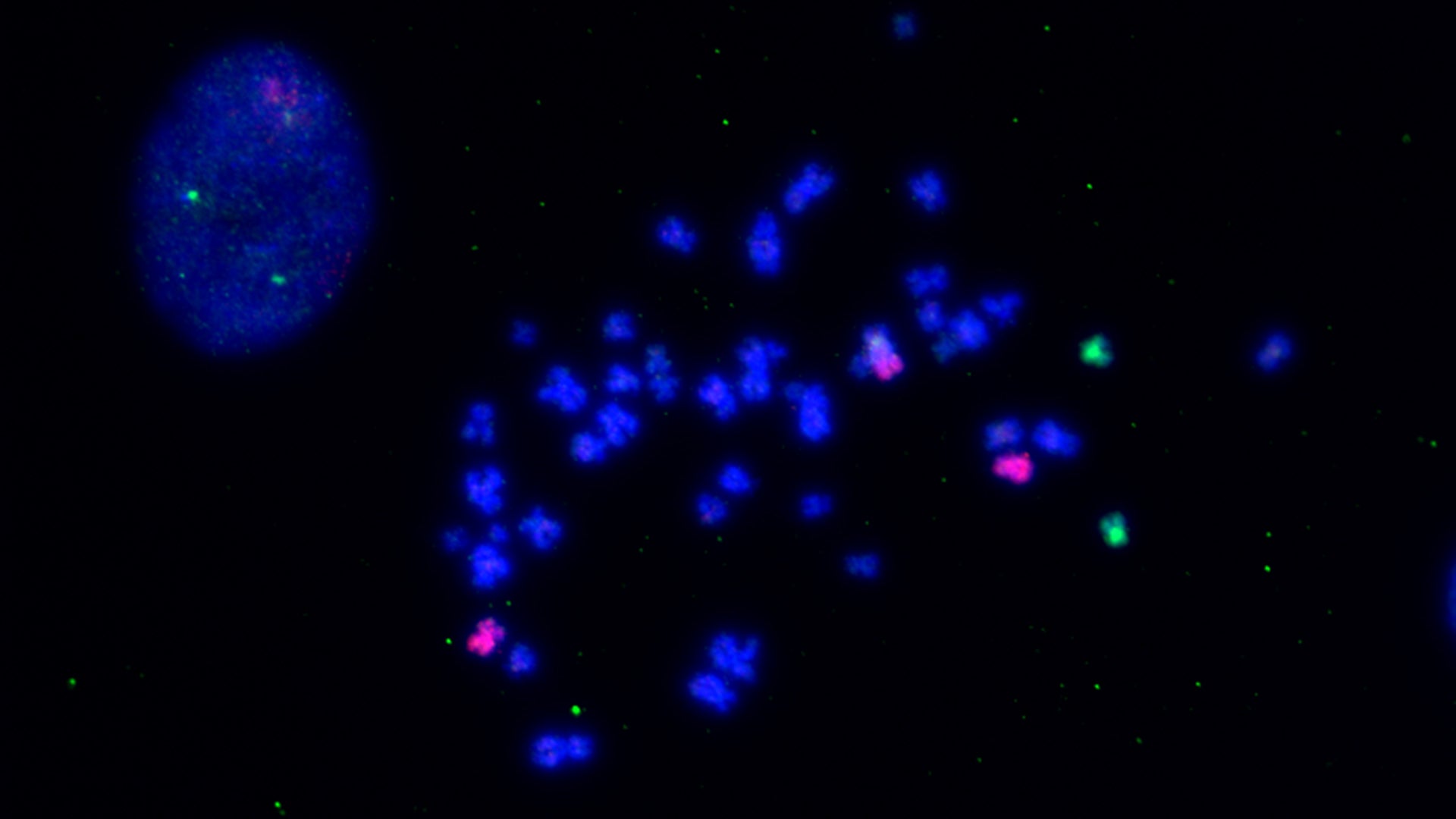
Aneuploidy is a genetic disorder present in some 90% of cancers. CSHL postdoc Asad Lakhani and his colleagues recently developed a tool called ReDACT that enables scientists to delete aneuploids from cancer cells. The technique appears to be effective against a wide variety of cancers, including breast cancer. As Lakhani explains, this could be a full-circle moment in cancer research.
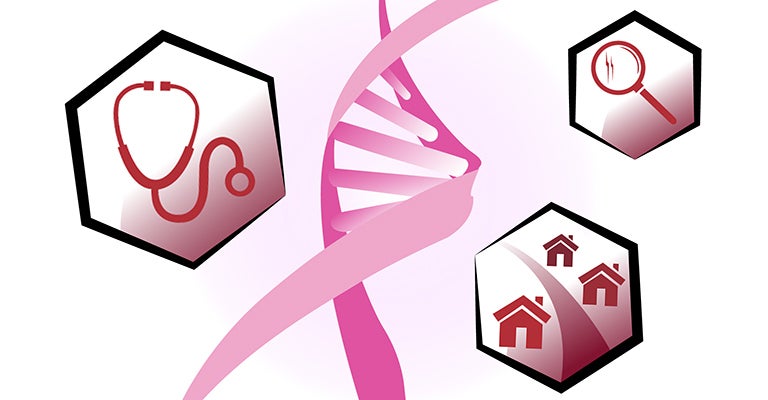
Share your Results:
